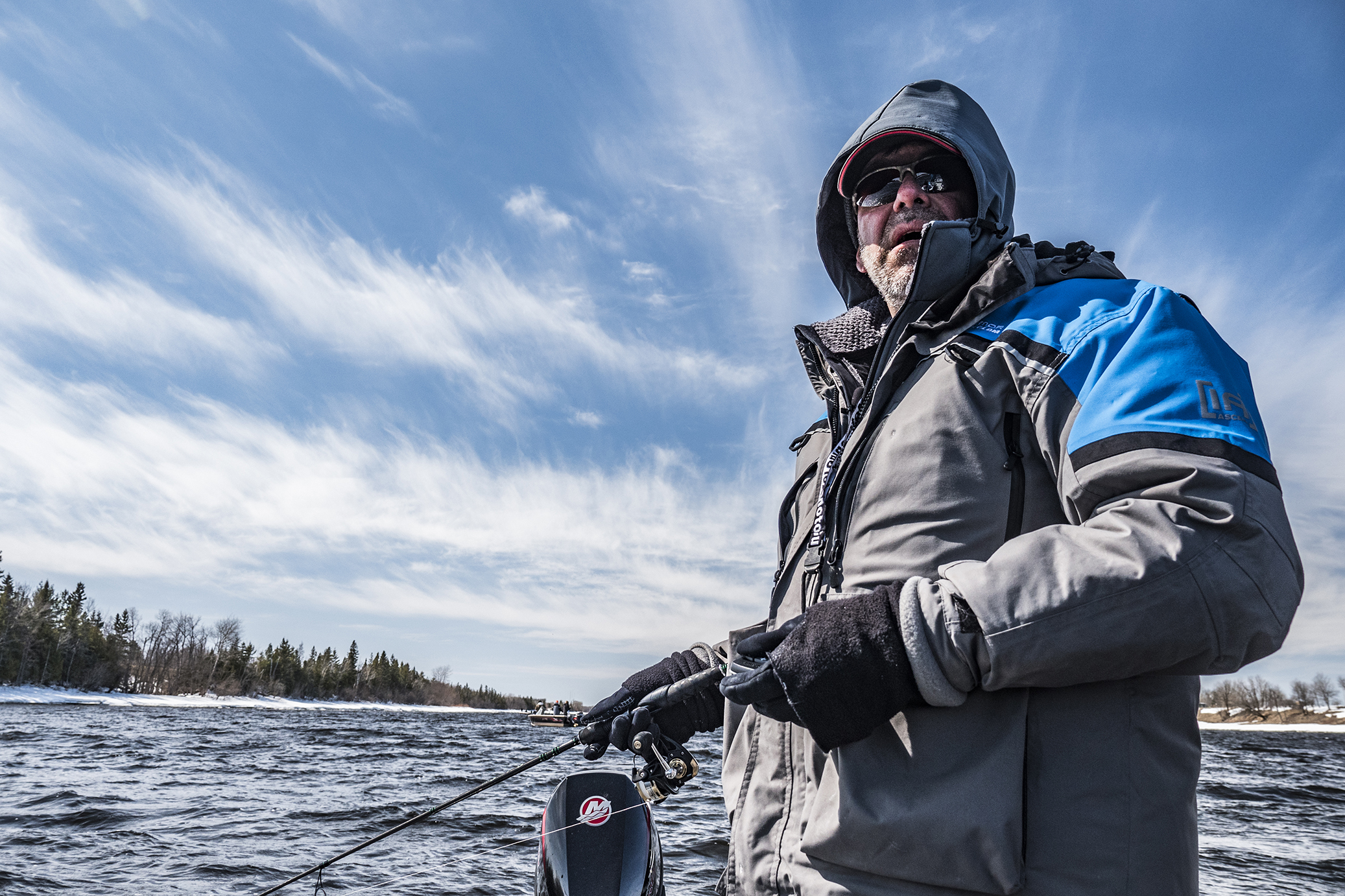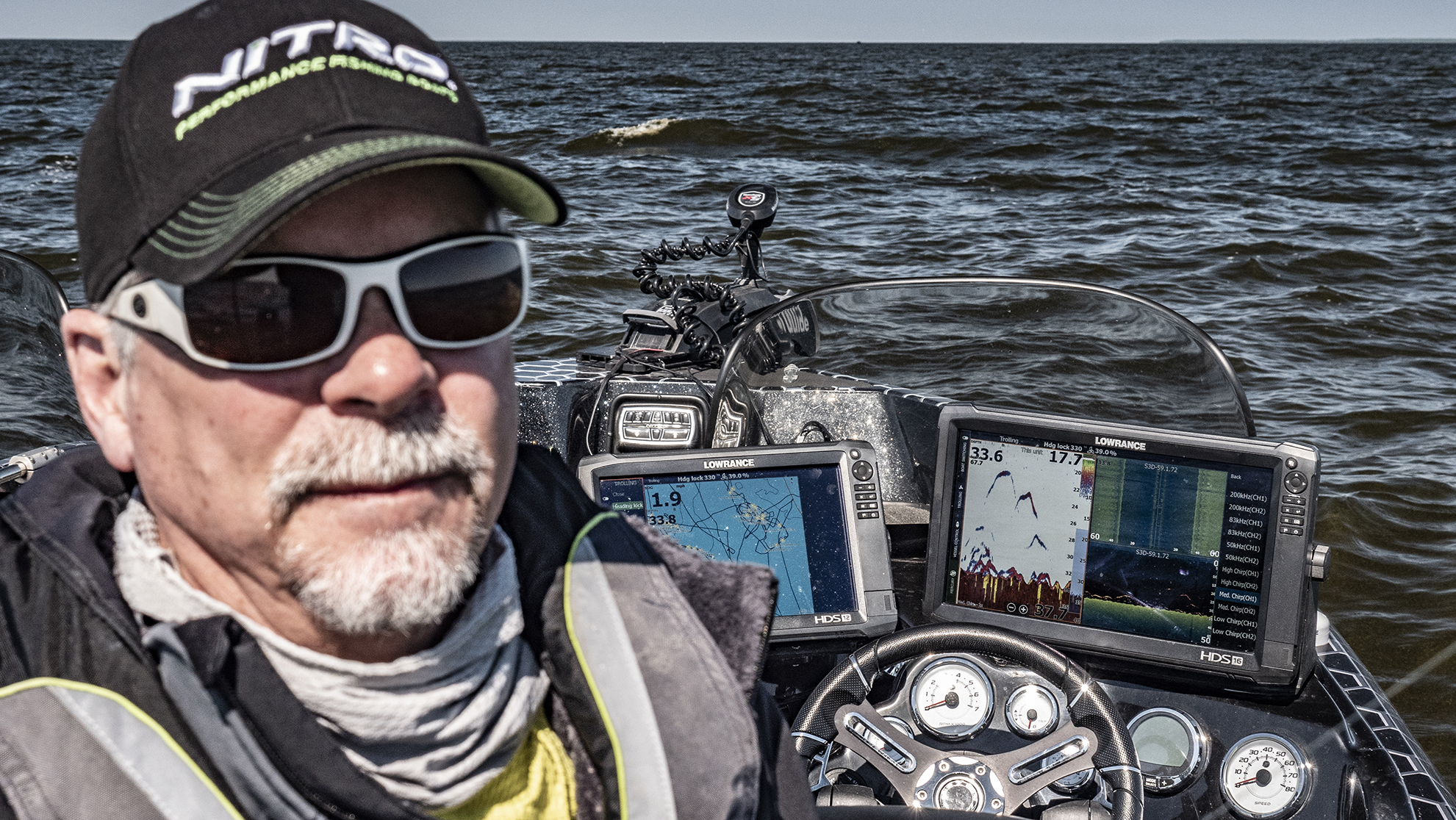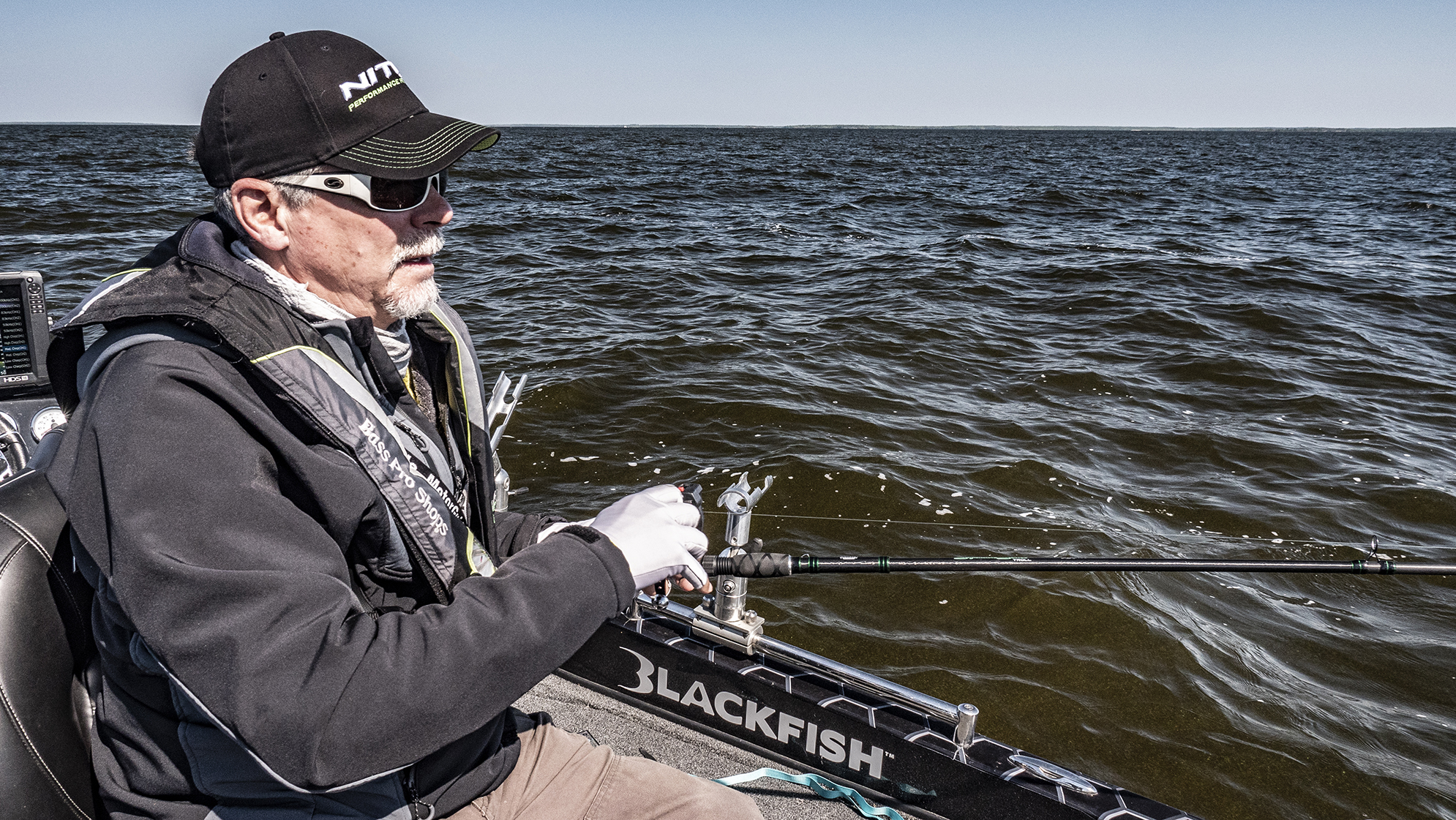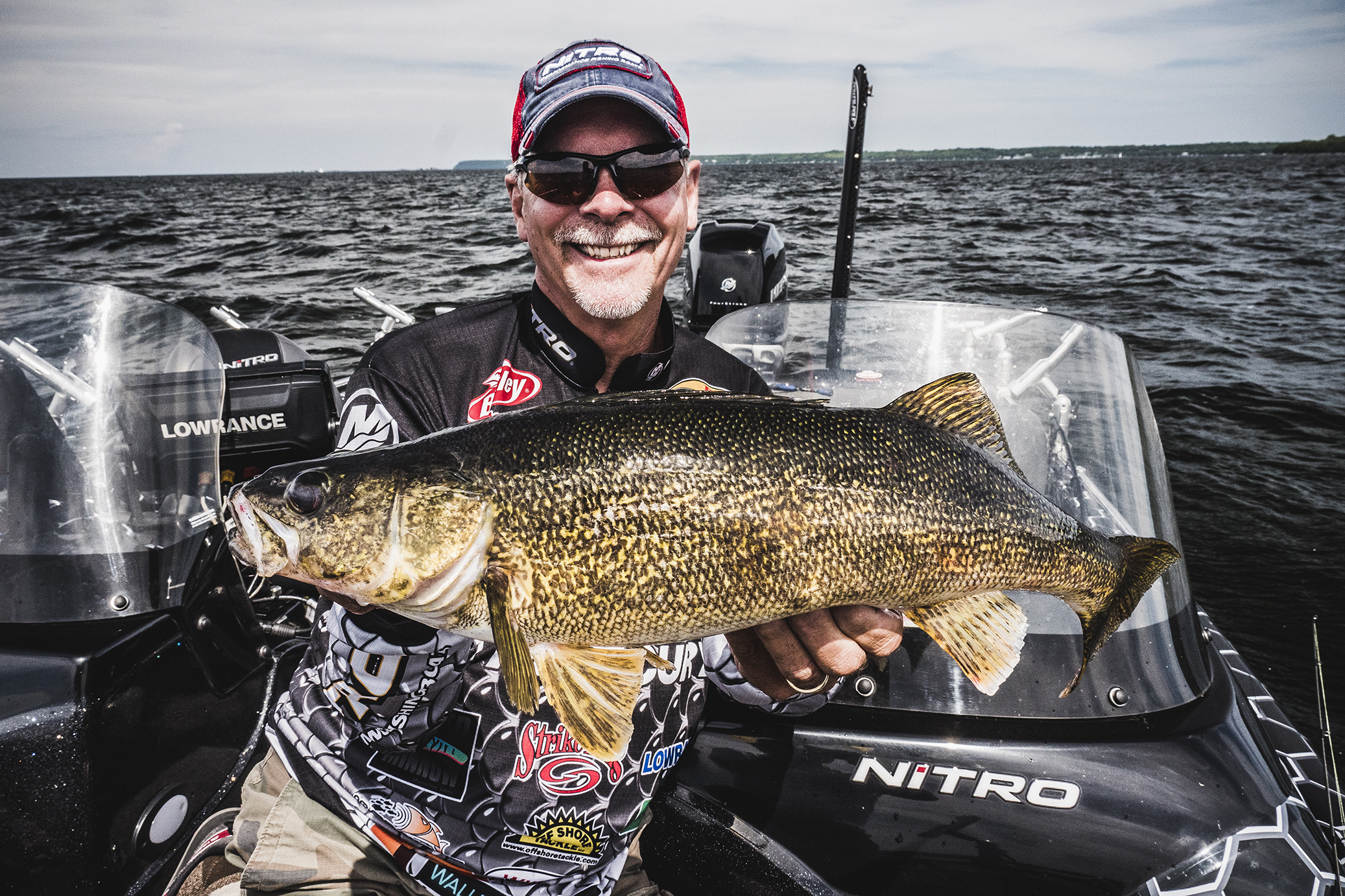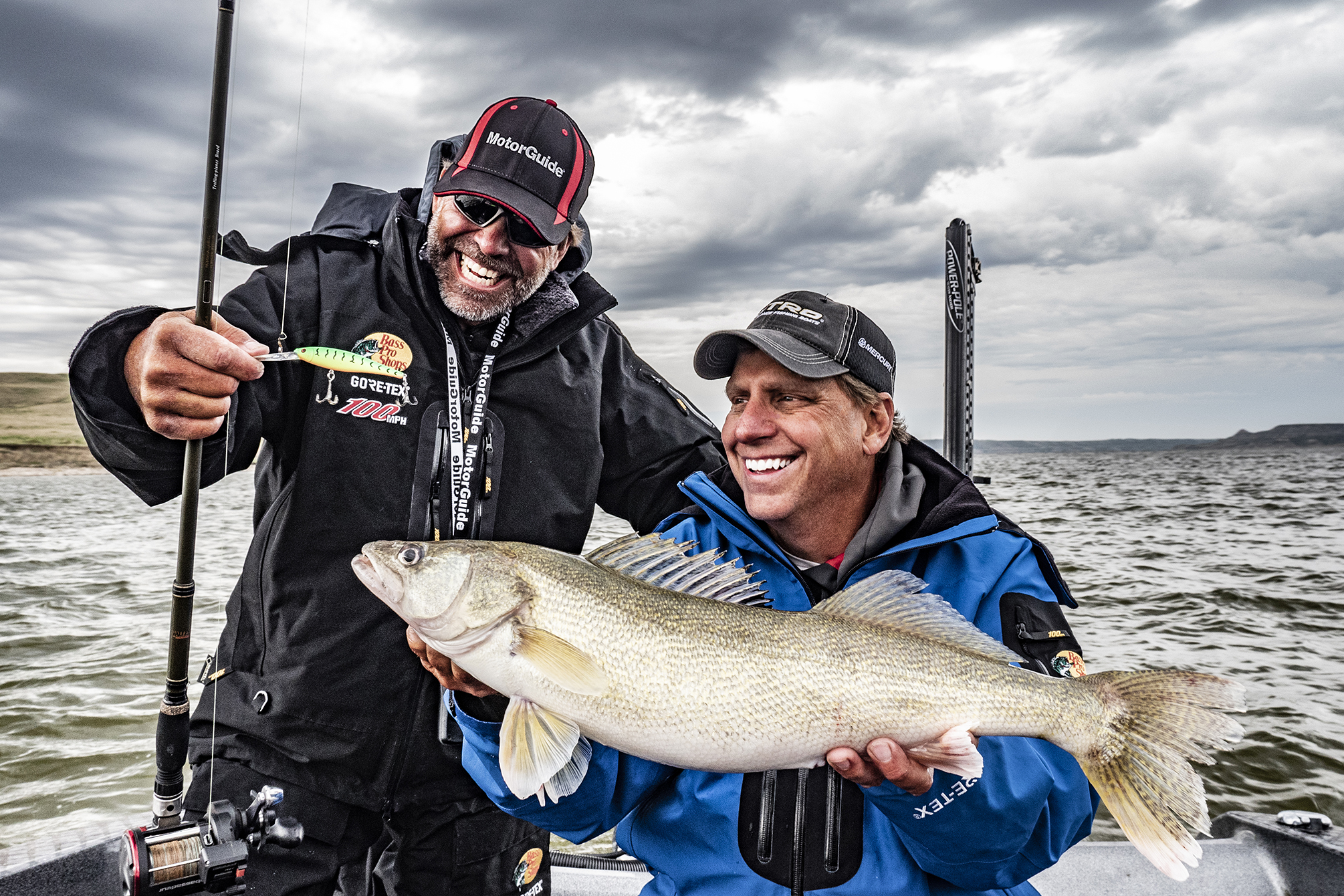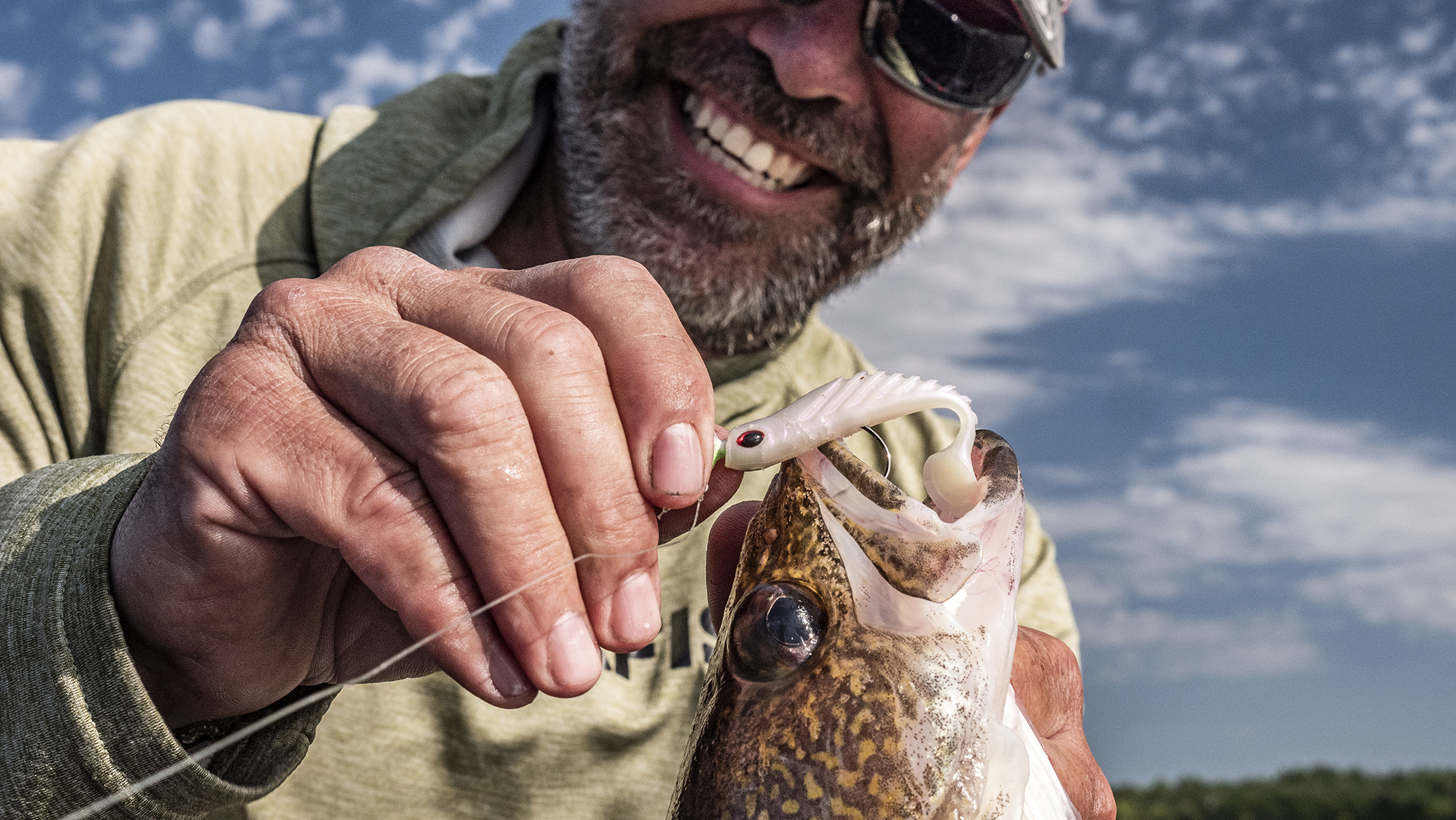One of the most exciting late season patterns is sight fishing for panfish which includes angling right below the ice over shallower water where you can actually see the bottom and see the fish. It’s a great a late season pattern although it can 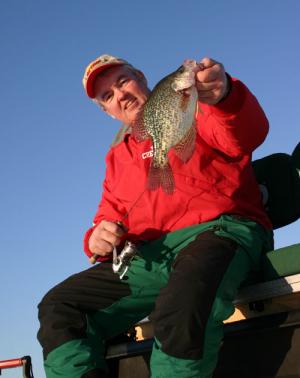 produce all season long. Going eyeball to eyeball with fish that are directly below your feet and just under the ice is what we’re talking about and is a real gas when it all comes together. If you haven’t had the pleasure you don’t know what you’re missing and is definitely worth a shot.
produce all season long. Going eyeball to eyeball with fish that are directly below your feet and just under the ice is what we’re talking about and is a real gas when it all comes together. If you haven’t had the pleasure you don’t know what you’re missing and is definitely worth a shot.
The key to it all is location and the pattern doesn’t setup everywhere. Some of the hottest hotspots are current areas where you can still find some standing green weeds. Current means more oxygen and a better chance for some of the weeds to survive. Medium clear to clear water will also help with weed survival, as well as being able to see all the way to the bottom.
Bluegills and even crappies will cruise right over the tops of the weeds while searching for something to munch on. Even if you don’t see fish right away don’t be afraid to work your lure up high, right below the ice. There are high riders that you won’t see until they suddenly show up, just inches away from your bait. Its fun when you can work a fish so close you could almost reach down and touch it and you get the feeling of fishing in an aquarium. Gills will come in and really eyeball a bait before they either take it or give up on it, and will give you an idea of what they do in deeper water. Because you’re so close you’ll have to sit still and use tiny motions when it comes to moving your lure or you’ll spook the fish and they won’t bite. Crappies on the other hand will often grab and go before you even know what happened.
To be able to see clearly you’ll have to get under cover and is when a lighter portable like Eskimo’s Qucikflip II comes in handy because it has enough room to be comfortable but is easy enough to pick up and move, even if you’re hoofing it. It also has a high quality cover that you can close up and get it nice and dark inside which is absolutely necessary for top to bottom viewing.
Because you’re fishing so shallow you better have your act together or it might not happen. That means using super light finesse presentations and includes two pound test like Northland Tackle’s Bionic Ice Fishing Line and the smallest jigs like the hot little Gill-Getter tipped with a Eurolarvae or two. The Gill-Getter has a super fine super sharp hook that you can gently slide through the tip of a maggot without turning it to mush. It also comes in some super colors like Fire Ant and Lady Bug which are a couple of my favorites. Although crappies are notorious for being minnow eaters they are almost always more than happy to wolf down a jig and maggot combo. When they’re in shallow they’re there for one reason and it’s not to get a tan. Typical movements include moving in from deep water and vacuuming up anything and everything reasonably acceptable and then heading back to deeper water. Bluegills on the other hand will stay shallow all day long and maybe why they think they have so dang much time to take in a bait. They’ll move up to your offering, ever so slowly back up, move up and then back again countless times before they finally say ah.
To get by with two pound test a light action rod can help keep you hooked up without breaking off and why I like Northland’s 24” ultra-light Trick-Stick. It has a nice soft action that is designed to be used with 1-4lb test. It doesn’t take much of a hook set either, not with four or five feet of line out. Simply lift up and real in.
Timing is definitely important and the hot crappie action typically starts at daybreak and ends early in the morning and then picks up again late in the day and on into the dark. If angling pressure is a problem your best bet is probably the early morning bite because most anglers won’t be willing to make the sacrifice to get on the ice before daybreak. Bluegills on the other hand seem to crank it up a notch or two later in the day and can peak by late afternoon.
Late ice can actually be the best time of the year to be out and when the action is most consistent. The thing is you’ll never know how good it can be unless you give it a try. See you on the ice.

